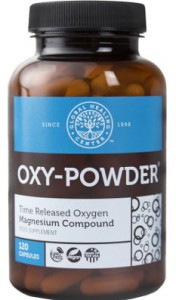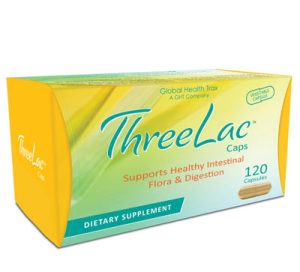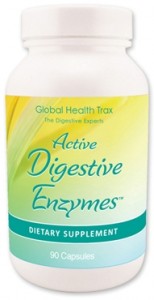Have you ever found yourself feeling low when suffering from diarrhoea? Or down in the dumps following a bout of abdominal pain or stomach cramps? Or has it struck you that you may feel more depressed than you’d expect along with a bit of digestive trouble? Well, research suggests this wouldn’t actually be surprising – and is probably very normal – because there are strong links between digestive and mental health.
Indeed, by studying gut microbiota (the community of micro-organisms found in the gut), experts have established significant connections between bacterial imbalance in this part of the body and mood and behavioural issues.
From the brain to the gut – and vice versa
There are three specific ways in which the brain connects directly with the gastrointestinal part of our bodies:
• The vagus nerve – this travels from the brain stem, via the neck and thorax, straight to the abdomen; it helps regulate heart rate, speech, sweating, and various gut functions via the supply of motor parasympathetic fibres to all organs apart from adrenal glands1
• The enteric nervous system – often called a ‘second brain’, owing to its capacity to autonomously communicate and connect with the central nervous system via the vagus nerve, this system can feature up to 600 million neurons2 that influence muscle activity in the gut wall and gland secretions of the likes of stomach acid, digestive enzymes and mucus3
• The gut-brain axis – by linking the brain’s emotional and cognitive centres with the intestine’s peripheral functions, this enables bidirectional communication between the central and the enteric nervous systems4.
Gut bacteria influencing mental health
So, owing to these direct links between the gastrointestinal part of the body and the brain, it’s been found that gut microbiota can – and does – influence brain chemistry, moods and behaviour5. How? Well, animal studies have shown there’s strong proof that micro-organisms in the gut activate the vagus nerve, thus have the ability to influence how the brain sets behaviour6. Could this be why sufferers of irritable bowel syndrome (IBS) – thus sufferers of symptoms like gas, diarrhoea, constipation, abdominal pain and cramping – often experience depression and anxiety? Quite possibly.
On a more positive note, the microbiota of the gut play a significant role in influencing the generation and application of serotonin and dopamine – serotonin being a ‘feel-good’ neurotransmitter that (along with dopamine) is important in establishing happiness and well-being. Indeed, you may be surprised to learn that 90% of serotonin in the body is in the gut, ensuring it’s a key regulator of gastrointestinal motility7.
Improving gut flora through diet – and more
Owing to all the evidence then – and, frankly, just plain common sense – it’s in the interest of all of us to look after our gut as much as we can; a healthy digestive system results in a healthy mind – and vice versa. Indeed, the condition of gut microbiota and a healthy gastrointestinal tract can be positively enhanced by a good diet8. And that means plenty of fruits and vegetables, plus fermented foods like yoghurt and kefir. Gut microbiota (the sort that’s good for us) love probiotics.
In fact, a study conducted in 2014 found that, by receiving a strain of probiotics, a group of rats enjoyed something of a therapeutic effect on the depressive and anxious symptoms they were suffering from, as well as a ‘normalisation of their immune response’9.
And if, for any reason, you may struggle to imbed the above suggested food types into your diet then you can follow the example of the aforementioned rats by getting your gut-friendly nutrients via supplementation. You might find one or more of the following gut health supplements available through The Finchley Clinic suit you perfectly – they do for many of our customers:
Oxy-Powder (120 capsules) – a great colon cleansing product, it offers a slow release of mono-atomic oxygen to ensure an inhospitable environment for harmful bacteria and other toxic matter, enabling free rein for the friendly bacteria needed for proper digestive and intestinal health
Threelac (60 sachets or 120 capsules) – contains Bacillus coagulans (a probiotic organism that may help solve occasional digestion and stomach issues), Bacillus subtilis (may aid removal of bad flora from the intestines) and Enterococcus faecalis (a major lactic acid bacteria group genus that’s extremely good for the gut); Threelac works very well with other supplements we sell
Colosan (120 and 40 capsules and in powder form) – a magnesium oxide powder that doesn’t just cleanse the colon but oxygenates it too
Active Digestive Enzymes (90 capsules) – aids general good nutrient uptake and could help someone looking to cleanse their colon of candida to improve food absorption; great for sufferers of lactose intolerance, diarrhoea, constipation, bloating and gas, IBS and heart burn, and nicely complements Threelac.
References:
1. ‘The Vagus Nerve’. Loyola University Chicago Health Sciences Division. Stritch School of Medicine.
2. Furness J. B., Callaghan B. P., Rivera L. R. and Cho H. J. ‘The enteric nervous system and gastrointestinal innervation: integrated local and central control’. Advances in Experimental Medicine and Biology. 2014; 817:39-71.
3. Purves D., Augustine G. J., Fitzpatrick D. et al. ‘The Enteric Nervous System’. Neuroscience, 2nd Edition, Sinauer Associates; 2001.
4. Carabotti M., Scirocco A., Maselli M. A. and Severi C. ‘The gut-brain axis: interactions between enteric microbiota, central and enteric nervous systems’. Ann Gastroenerology. Apr-Jun 2015.
5. Dinan T. G. and Cryan J. F. ‘Melancholic microbes: a link between gut microbiota and depression?’ Neurogastroenterology and Motility. Sept 2013.
6. Forsythe P., Bienenstock J. and Kunze W. A. ‘Vagal pathways for microbiome-brain-gut-axis communication’. Advances in Experimental Medicine and Biology. 2014.
7. Reigstad C. S., Salmonson C. E., Rainey J. F., Szurszewski J. H., Linden D. R., Sonnenburg J. L., Farrugia G. and Kashyap P. C. ‘Gut microbes promote colonic serotonin production through an effect of short-chain fatty acids on enterochromaffin cells’. FASEB J. Apr 2015.
8. Dash S., Clarke G., Berk M. and Jacka F. N. ‘The gut microbiome and diet in psychiatry: focus on depression’. Current Opinion in Psychiatry. Jan 2015: 28(1):1-6.
9. Slyepchenko A., Carvalho A. F., Cha D. S., Kasper S. and McIntyre R. S. ‘Gut emotions – mechanisms of action of probiotics as novel therapeutic targets for depression and anxiety disorders’. CNS & Neurological Disorders Drug Targets. 2014:13.



